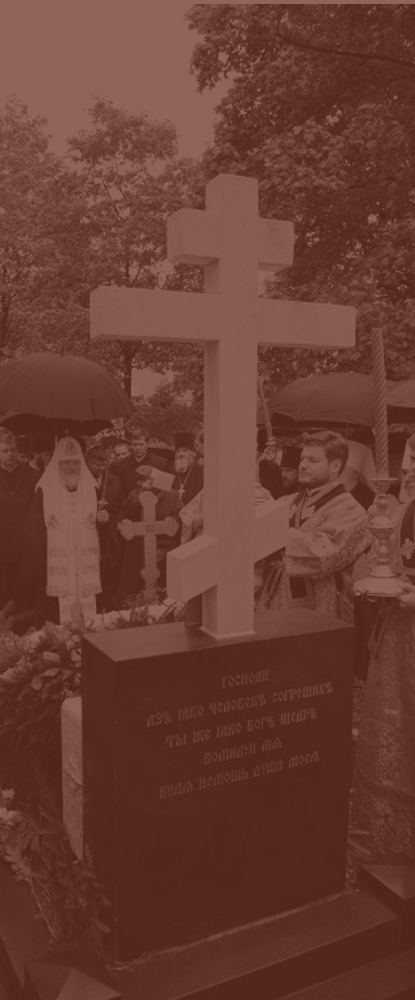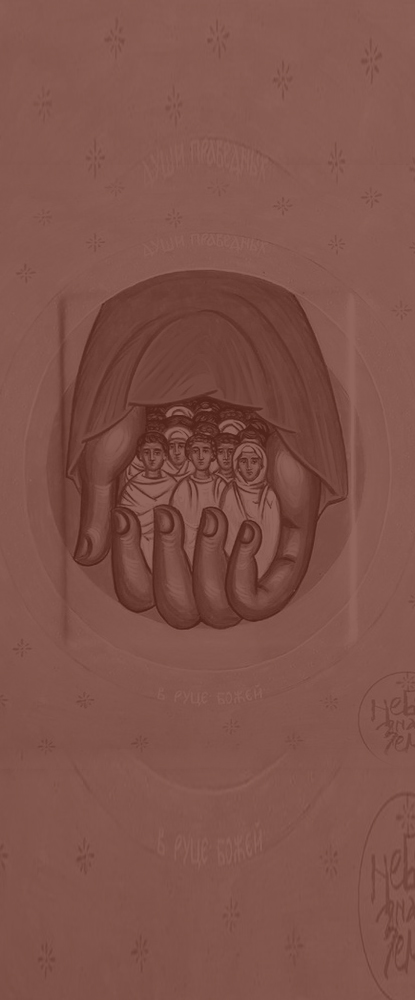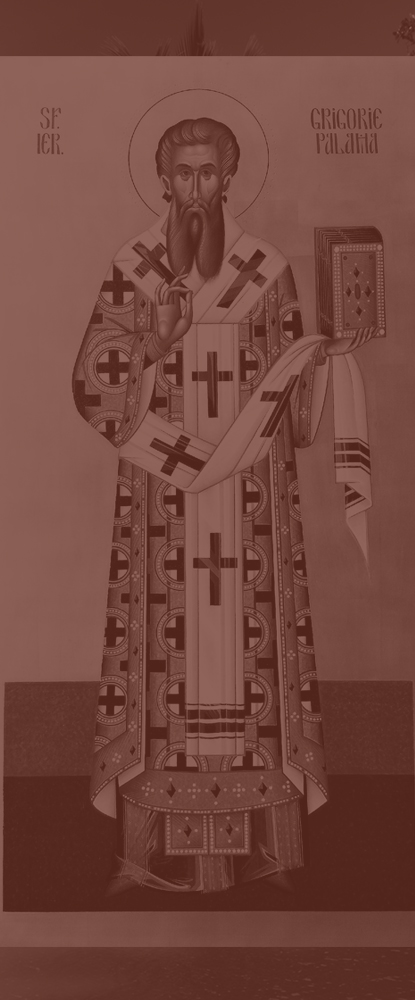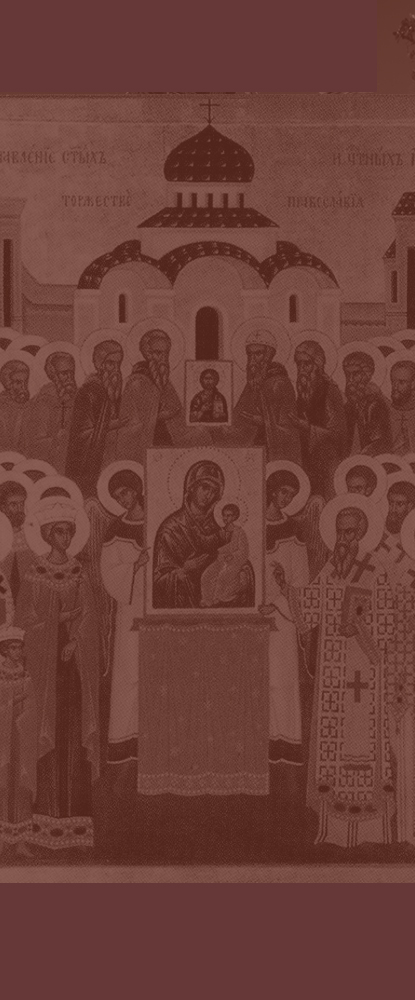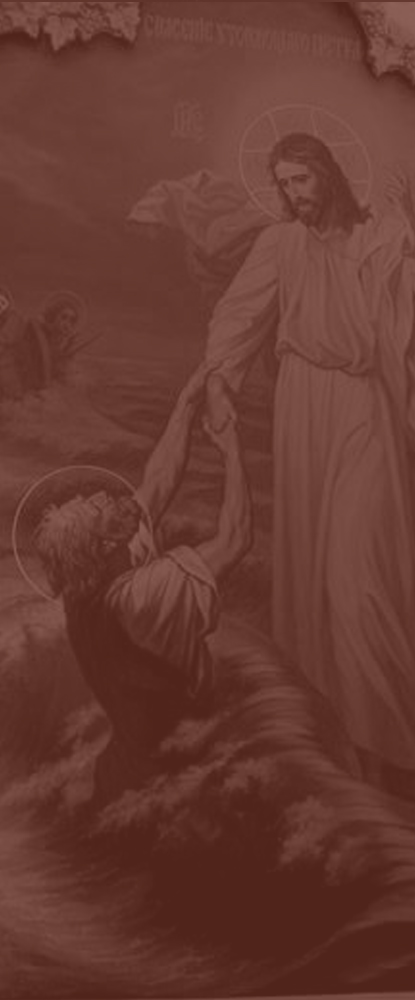CROSS AND SWORD
Sermon for the Sunday of the Cross. 19.03.2023
In the name of the Father, and of the Son, and of the Holy Spirit!
Today is the third Sunday of Great Lent and it is dedicated to the Veneration of the Holy Cross. All this week is dedicated to the theme of our Lord’s Cross. There are the following words of the Lord in the Gospel, “I brought a sword.”1 Not many people understand what these words mean. What sword did Christ bring?
When the Most Holy Theotokos brought the Infant Christ to the Temple of Jerusalem, She heard the following prophecy, “A sword will pierce through your own heart also.”2 Along with the honor of being the Mother of God, the Most Holy Theotokos accepts this horrible prophecy, “A sword will pierce through your own heart also.” This sword Christ is talking about. He also says, “If you desire to be My disciple, take up your cross and follow Me.”3
We are so far from the times of the first martyrs, that a cross has become a kind of decoration for us. We choose a cross to our liking at a church shop, paying attention to whether it is silver or gold and to the shape of the cross. And there is a wide range of choices for us. Thus, the external shape has begun to lose its essence, its mere meaning. A cross is not jewelry that we wear. The Cross is literally a sword that will pierce not only through the heart of the Holy Theotokos, but also the heart of every Christian, who follows Christ. If this is sincere and deep, the Cross becomes a sword for everyone.
In England, there is a statue near the Parliament, a monument to a king. I might be mistaken now; I guess it is dedicated to King Richard, who holds the sword by its hilt hoisting it. He holds this sword with a cross-guard above the hilt like a cross. This is a very good analogy. A cross and a sword is the same issue. This is the sword and this is the cross Christ is talking about.
Some people, unfortunately, understand this incorrectly. They hear only the first phrase saying that your Christianity will divide you from your relatives, from those who are unchurched, who did not follow Christ, you will have a conflict with them and you will even be persecuted. And some people misunderstand this, the meaning of the “sword,” they think they will fight against their relatives. They will separate from their father, mother, brother and sister. Those Christians who misunderstand the meaning, think this is the war against their unchurched family.
In fact, this cross is in bearing the misunderstanding of the people who are the closest to you. It consists of misunderstanding, judging and even persecution by the closest people, by one’s family. A father will not understand his son, a wife will not understand her husband and there will be separation.
Those who understand this incorrectly, begin to fight. They apply the sword to destroy their opponents. Meanwhile, those who understand the meaning of this sword and cross correctly, through the Holy Spirit, realize that this sword will pierce through their heart. It will not be the heart of their enemy or opponent, but it will be their own heart. Our heart should be very vivid, reverential and delicate, as the note on which God sounds is a very-very delicate note.
So many of you are standing before me now. Who is hearing God? It is sad, isn’t it? Even children are not hearing. They hear they are hungry. This happens because our heart has become coarse. This coarse heart of ours hears only some rough and striking notes. It ceased to perceive the subtlest note of God. Our heart is so rough that it is sometimes compared to a stone. It has become a stone. And this subtle note of the Holy Spirit simply bangs against this stone just like against concrete.
In order to make our heart softer, we need to moisten it. Do you know how people’s hearts moisten? The sword, which Christ is talking about, injures our heart and spills the blood. Blood moistens the heart as well as do blessed tears. They moisten and soften this stony heart. When it becomes soft, responsive and flexible again, it becomes living. It resembles dry grass, which has dry blades, but its roots still have some life in them. The only thing it needs is watering. The Holy Fathers watered this grass, this little growth, with their tears and blood. There is a saying of the Holy Fathers, “Do you want to acquire the Spirit? Give your blood and sweat and acquire the Spirit.”
To make your heart alive, you need to water it. Perhaps, my words might seem harsh and make no point for someone. This sword pierces a stone heart and it bleeds. The blood softens the heart, its callousness and hardness. Thus, it becomes soft.
Blood and tears, this is what Christ is talking about. This is the mystical essence of the Cross. It is enigmatic even for many Christians, because they simply do not get this, but it is excusable. At the same time, some people do not want to understand, because this issue brings pain. And we are not ready for pain. We do not want it and escape it. We run away from this sword.
The Lord pierces our heart with this sword like a surgeon. He does not kill it, but revives it in fact. He spills the blood. However, this issue is very hard, this is why we run away.
The only thing, which we stop our Christianity at is, “Lord, help me. Lord, strengthen me. Lord, give me. Lord, console me.” This “Lord” and everything I have listed does not comprise, “Lord, here is my heart.” The Lord says in the Holy Scripture, “My son, give me your heart. I do not need your goats and rams, I do not need the candles you lit and the incense you burn. I do not need your donations. I will miraculously give you everything and everything will be built. My son, give Me your heart.”4 Giving heart is very painful. At the same time, it is beautiful and noble. If you only knew how sweet it is to give your whole heart to Christ! To the Sweetest Christ, to the Beloved Christ, to the Most Precious Christ. To give Him everything.
Lord Jesus Christ…
1 Mt.10:34 (“I did not come to bring peace but a sword.”)
2 Lk. 2:35 (“A sword will pierce through your own soul also.”)
3 Mt. 16:24 (“If anyone desires to come after Me, let him deny himself, and take up his cross, and follow Me.”), Mk. 8:34 (“Whoever desires to come after Me, let him deny himself, and take up his cross, and follow Me.”)
4 Prov. 23:26 (“My child, give me your heart.”)
